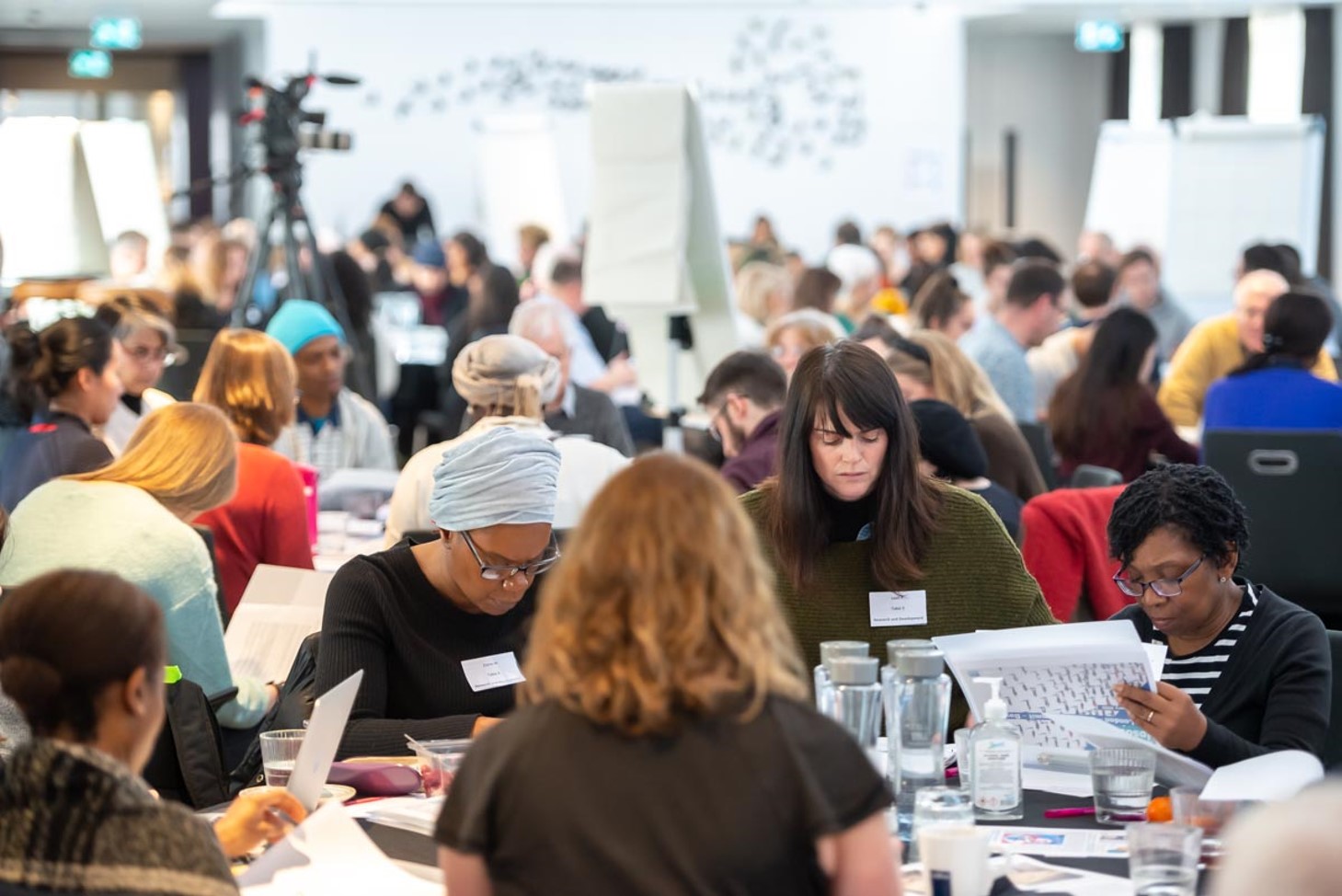Blog
Where data is concerned, trust is a two-way street
ICHP and Discover-NOW Senior Patient and Public Involvement and Engagement (PPIE) lead, Sadie Myhill, reflects on the learnings from the Discover-NOW Citizen’s Advisory Group and why we all need to trust in the public as well as ask for theirs.

COVID-19 shone a spotlight on the power of using data to not only drive new discoveries, but also address public health concerns and ensure public safety. Whilst it’s imperative that we keep this momentum going, we must make sure that we also learn from what wasn’t done – for a myriad of reasons – and effectively engage the public as part of the decision-making process. From remote monitoring of heart patients to predictive and preventative diabetes care, analysing population-level data has the potential to unlock the UK’s most pressing health and care challenges. But for this ambition to succeed, creating and sustaining public trust is essential.
Preventing misinformation and mistrust
How health and care data is used, who should have access to it, and for what purposes, are all issues that matter to the public. After all, it’s their data, they should have a stake in it. However, perceptions around this topic are often clouded by assumptions and misinformation on both sides. We need to shift the narrative – and patient and public involvement has a central role to play.
Through opening the conversation up and giving citizens a voice, we can start to build trust and credibility – from deciding which research gets approved and shaping its delivery involvement, to helping us to get the fundamentals right, focusing on issues that matter most, and operating in a way that aligns to public expectations. Crucially, it creates greater transparency and accountability which are out best hope at preventing misinformation and mistrust.
A deliberative approach
From the outset, Discover-NOW has sought to build an authentic relationship with our local population, centred on openness. In Partnership with Ipsos, our host organisation Imperial College Health Partners has been driving a cultural shift around involvement in data through deliberative engagement. The OneLondon Citizen Summit was the start of this journey and paved the way to Discover-NOW establishing our own Citizen’s Advisory Group. This work has since been adopted and scaled by the London Health Data Strategy programme, with public input influencing how London’s data environments will be configured and governed moving forwards.
All complex decisions come with trade-offs and deliberation creates time and space for participants to explore these in a considered way with the support of expert input. It enables decision makers to work in genuine partnership with the public and – vitally – it puts trust in the public to guide our direction and inform our governance processes. Importantly, deliberative engagement involves reflective ‘mini populations’, creating opportunity for diverse and offering different perspectives to be heard. This results in more balanced and informed outputs, truly reflective of our local public.
PPIE from the start
While historically the health and care system has been slow to grasp and harness the power of an involved and engaged public, more and more we are seeing the willingness of major organisations to consult the public on key data and health decisions. At the recent HDRUK Digital Hub Showcase Event, the importance of patient and public involvement was a golden thread running throughout the day, which shows how far we’ve come.
At Discover-NOW we are reaping the benefits of this patient engagement focus and our deliberations first-hand. Through focusing on key dilemmas facing the Hub we have been able to ensure our process and practices are underpinned by the expectations of our local community, giving us confidence to be bolder in our approach and enabling us to go further, faster. By putting the public at the heart of what we do, we are sending a clear message about our values. This is not only important for our local population to see but sets the tone for our partners and clients too.
Hope for the future
I believe we need to stop seeing PPIE as a tick box exercise and put our trust in the process of engagement delivered robustly with people from all walks of life, as a method for ensuring acceptable data use. Our Citizen’s Advisory Group is evidence that a little trust of our own in the public goes a long way and, considering the amount of trust we ask in relation to collecting and using their personal health data, I think it’s the least we could do.
Related posts
Our services
Transforming the delivery of healthcare through data
Our team can work with throughout the life spam of your project
Our services